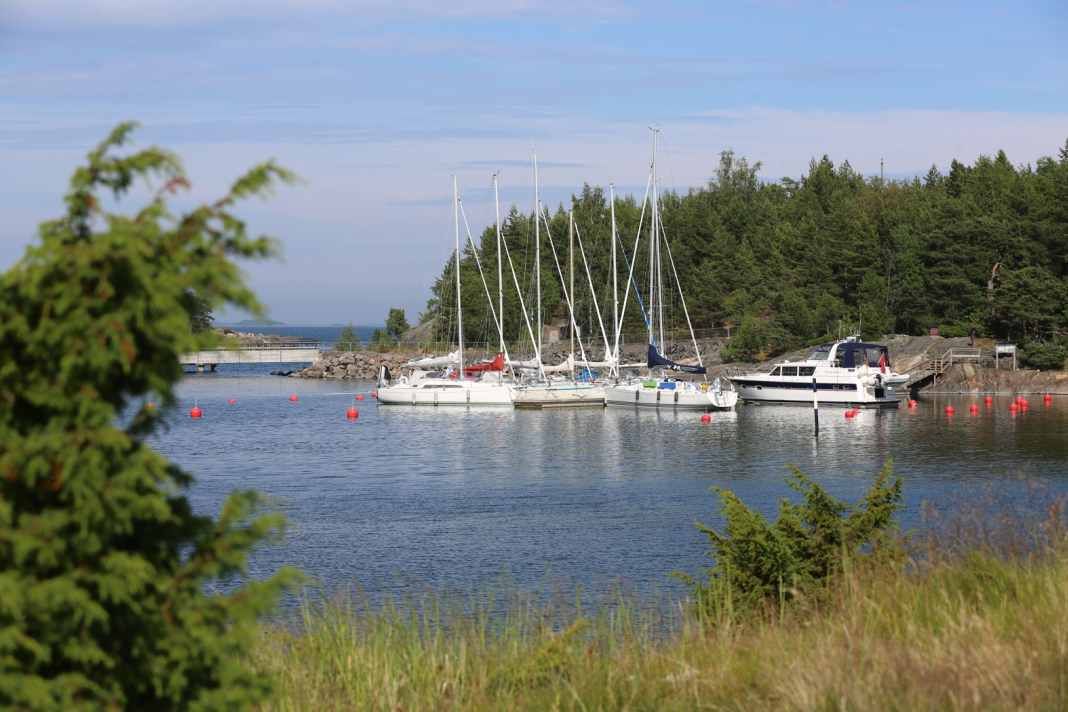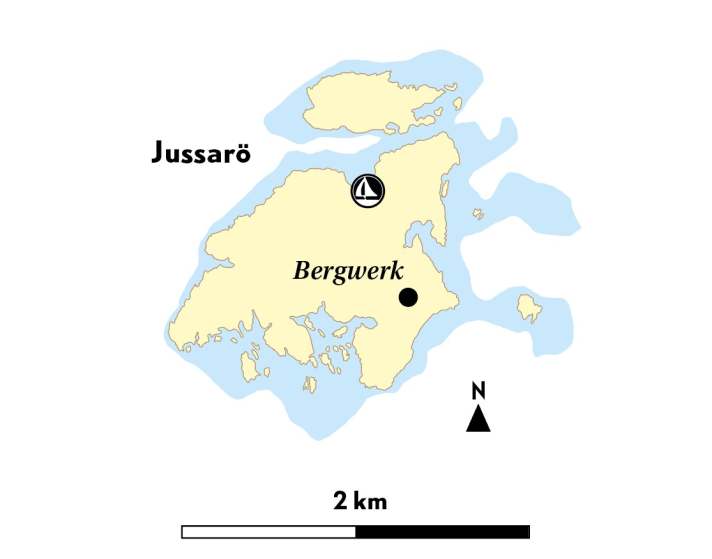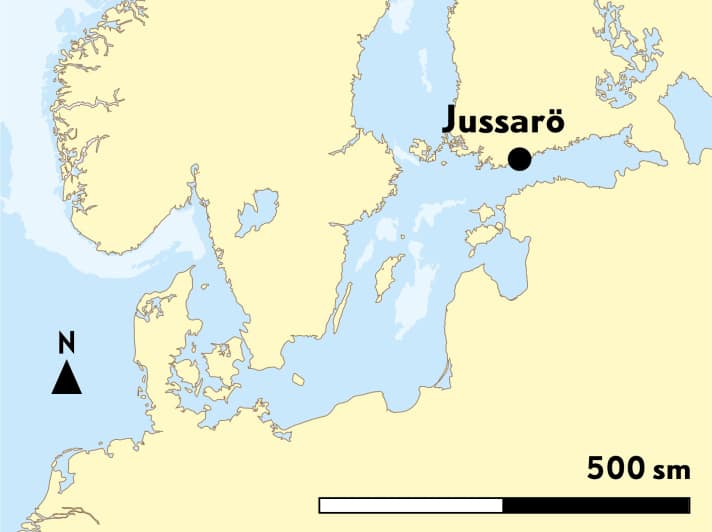





In the middle of the dense deciduous forest of Jussarö, which largely covers the island of just one and a half square kilometres, Finland's only ghost town ekes out an existence - crumbling blocks of flats with empty window cavities stand here, storage sheds full of bracken. And bungalows with young birch trees growing in them.
Ore mining under the Baltic Sea
In the small Café Ön right by Jussarö harbour, which is only open in season, you can learn about the history of the abandoned buildings: they belong to an iron ore mine from the 1960s. The mine is still standing too, close to the lonely, grey sandy beach on the southern shore, encased in equally grey concrete against the bitter cold in winter.
This is because the ore reserves were not stored under the island at all: although they drilled 250 metres into the depths, they drove the floors under the sea. In the end, the length of the underground railway measured 3.5 kilometres. This is how the main deposit was reached under the tiny archipelago.
However, after six years, operations were discontinued in 1967 due to a lack of profitability. The grand plans had crumbled to dust. Since 1989, the western part of the island has been part of the Ekenäs National Park.

Back to the harbour of Jussarö
We follow the half-overgrown wooden skeleton of the conveyor belt back to Jussarö harbour. Children play on the still-warm rocks, Finns on a traditional sailing boat belt out folk songs, and an elderly woman immortalises the atmosphere of this bright summer evening in watercolours on an easel. How lively even an uninhabited island can be!
Jussarö is located in the Baltic Sea at position: 59º49'50 "North and 023º34'21" East. It is located in the Ekenäs archipelago, a part of the southern coast of Finland that is already part of the Gulf of Finland. The former mining island is 1.35 square kilometres in size. The Jussarö guest harbour has a T-shaped jetty with stern buoys and a small café that is open in the high season.

